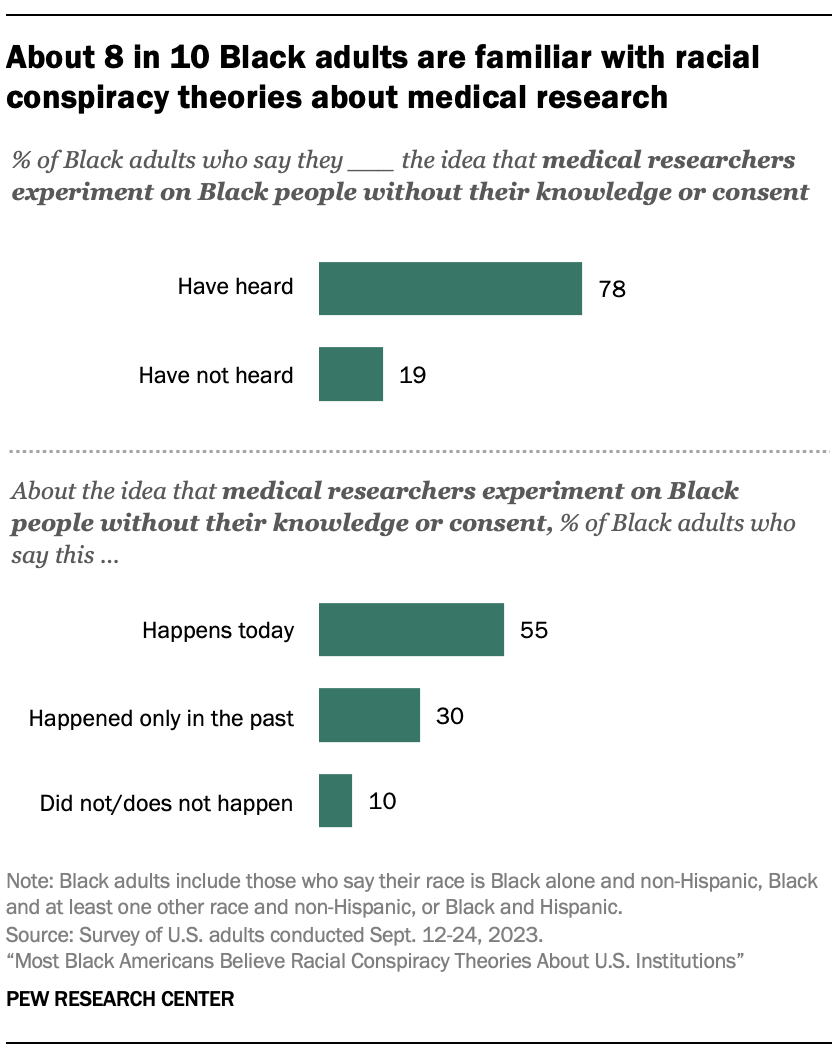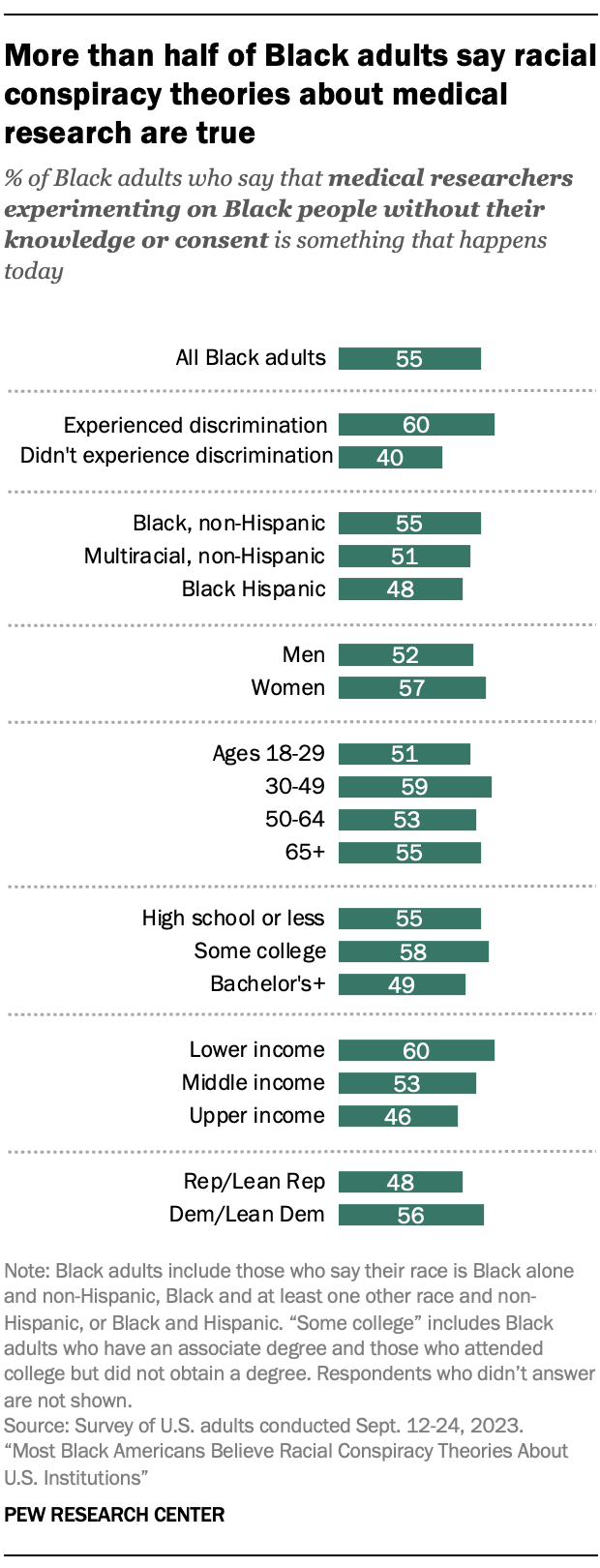Although the Tuskegee Syphilis Study is one of the best-known examples of race-based medical malpractice, there are others.
Throughout the 20th century, Black women were subject to eugenics laws that forcibly sterilized them. In 1951, Henrietta Lacks’ cervical cells were harvested and studied without her knowledge or consent – a legal case that was settled in 2023.
Today, both Black men and Black women specifically seek out Black doctors to avoid racial discrimination in medical care and improve their health outcomes. This history of mistrust provides the context for Black Americans’ beliefs in racial conspiracy theories about the health care system and medical research.
Some Black Americans believe the health care system was designed to hold them back
What is a ‘racial conspiracy theory’?
In this report, the phrase “racial conspiracy theories” refers to the suspicions that Black adults might have about the actions of U.S. institutions based on their personal and collective historical experiences with racial discrimination.
A 2022 Pew Research Center survey found mixed results in how Black adults assessed their experiences with health care. While nearly half (47%) said health outcomes for Black people have improved over the last 20 years, sizable minorities said they have stayed the same (31%) or gotten worse (20%). And the majority of Black Americans (55%) said they have had negative experiences with doctors, including having to speak up to get proper care and feeling like the pain they were experiencing was not taken seriously.
In the current survey, 51% of Black Americans say the health care system was designed to hold Black people back a great deal or fair amount. Another 28% say it was designed to hold Black people back some, and 19% say not too much or not at all.
Black adults differ significantly on this question by gender. Indeed, Black women (58%) are more likely than Black men (44%) to say the health care system was designed to hold Black people back. But Black women under 50 (61%) are much more likely to say this than older Black women (54%) and all men regardless of age (44%).

These patterns are like those in the 2022 study, which found that Black women (particularly those under 50) were significantly more likely than Black men to report negative experiences in health care. This includes not having their women’s health concerns taken seriously.
Familiarity with and belief in racial conspiracy theories about medical research
While many Black adults say the health care system was designed to hold Black people back (51%), more have heard about racial conspiracy theories about medical research. About eight-in-ten (78%) say they have heard the idea that medical researchers experiment on Black people without their knowledge or consent. Only 19% say they have not heard about this at all.

When it comes to belief in racial conspiracy theories about medical research, 55% of Black Americans believe experiments on Black people without their knowledge or consent happen today. Fewer say this happened in the past but does not happen today (30%) or that it never happened (10%).
Like their general belief that the health care system was designed to hold Black people back, Black women (57%) are slightly more likely than Black men (52%) to believe medical experimentation on Black people without their knowledge or consent is something that is happening today.
Black adults with some college (58%) or a high school diploma (55%) are more likely than those with a bachelor’s degree or higher (49%) to say medical experimentation on Black people without their knowledge or consent happens today.
Likewise, Black adults with lower incomes (60%) are the most likely among the income groups to agree.
Black adults who live in the Midwest (60%) are more likely than those in the Northeast (52%) to say medical experimentation against Black people happens today. About half of Black adults in the South (54%) and the West (53%) say the same. Black adults in urban areas (59%) are more likely than those in the suburbs (51%) to say these types of experiments happen today, while 57% of those in rural areas agree.




